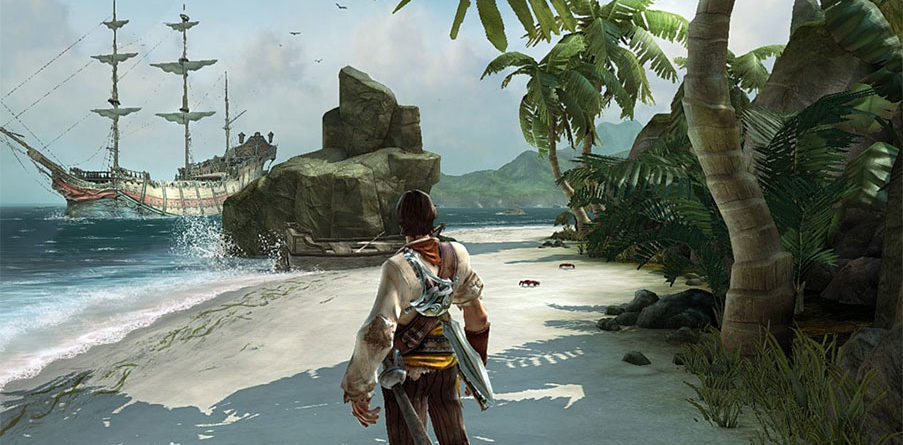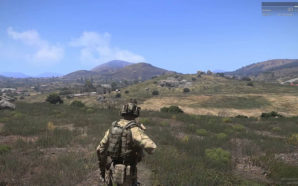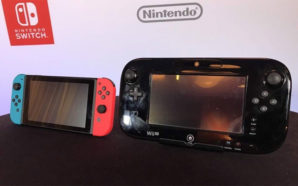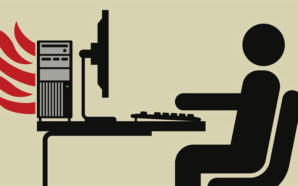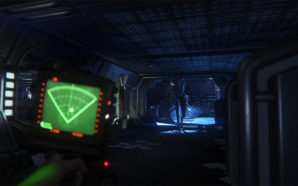‘CANCELLED’ is a series of posts at PlusMana.com that examine games that, for one reason or another, have never seen the light of day. In part one of the series, we take a look at why Pirates of the Caribbean: Armada of the Damned was eventually cancelled.
Pirates of the Caribbean: Armada of the Damned was an ambitious title by Disney, that wasn’t released. It seems like once upon a time Disney was seriously looking to enter the game market. Sure, Disney-based games have been around since the ’80’s, with the fondly remembered Capcom-backed games. The Disney Interactive branch of the company has been around since the mid-’90’s. But during the late 2000’s-early 2010’s, Disney seemed to be attempting something new. Disney was attempting to create high-profile games that gamers would take seriously. Game developed by studios owned internally. Sadly, it was a venture that turned out to be unsuccessful.
It was initially similar to what happened to WB Interactive. Both companies were known for simply releasing property tie-ins. Both wanted to be seen as legitimate participants in the world of gaming. For Disney, this plan seemed like a slam-dunk. Disney has the most recognisable (and let’s be honest, bankable) roster of IPs in its stable. Having internally-owned studios, studios with high-quality talent, to create games based on their properties seemed like a surefire plan for success.
But it all went crashing down.
Disney had two pretty high-profile games on their roster, both from the same studio, Propaganda Games. The studio had only released one game, 2008’s Turok, which wasn’t a critical success but sold over a million copies. Because of this, Propaganda was given projects based on two of Disney’s most geek-friendly franchises, Pirates of the Caribbean and Tron. One of these games was released. The other was not, and Propaganda was shut down before they could even get the chance to release it.
To Become Legendary, or to Become Dreaded
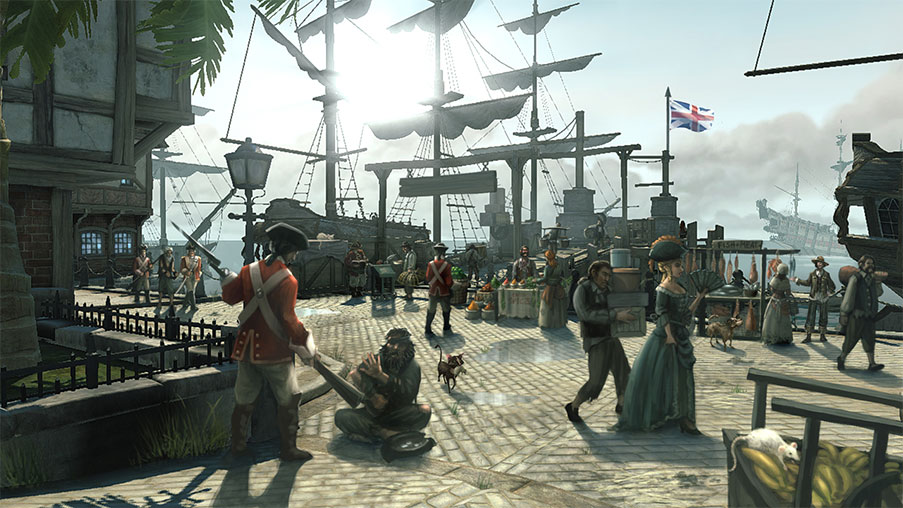
Credit: gamebanshee.com
Armada of the Damned was an ambitious game, at least for Disney, which, as stated, wasn’t exactly taken seriously in the world of gaming. Set in the same universe as the film series of the same name, Armada of the Damned took place an unspecified amount of time before the films. The game was an open-world adventure game with RPG elements. Players would have taken on the role of pirate James Sterling, who died on his first pirate voyage. Sterling was brought back to life via mysterious circumstances, and from there, the player could decide Sterling’s fate and reputation in the pirate world.
Similar to games developed by Bioware, Armada of the Damned was to feature a morality system, though with some differences. Players could choose their reputation right from the start. You could either be Legendary, and be a revered pirate who acts nobally, or Dreaded and feared by everyone. You chose this right from the jump, and it affected your subsequent play though.
Armada of the Damned was also to feature a dialogue system, allowing you to further impact how you were viewed in the pirate world. The dialogue choices system seemed pretty unique, from what little footage we have. Instead of giving you snippets of what you’re character may say, you instead see Sterling’s thoughts.
Obviously, as this was a game that was cancelled before it was completed, not much is known about the game and its mechanics. But, given in as vague detail as possible, your reputation and relationships with the people you encounter would also impact what pirates you assemble for your crew, and how you are able to team up with them. The people you recruit would also influence what sort of upgrades you can acquire for your ship.
Sailing the Seven Seas With Pirates of the Caribbean
If this year’s E3 was any indication, pirate games seem to be one of the biggest trends right now. You’ve got Rare’s Xbox exclusive Sea of Thieves, Ubisoft’s new IP Skull and Bones, and Assassin’s Creed Origins, which features naval combat returning to the series. Armada of the Damned, as previously stated, was to be an open-world game, and naturally, was to feature naval combat as well.
Sterling’s ship, the Nemesis, was to be customised by the player. Again, details are vague here, but Sterling’s reputation apparently would influence how your ship would change and improve. As an open-world pirate game, you would be able to use your ship to traverse the seas and travel to different islands. As far as I know, there has not been any information directly confirming this, but it stands to reason that you would be able to travel to some of the series’ most iconic locales, like Port Royal and Tortuga.
Ship-to-ship combat was to be a big element of this game, which may seem obvious. When dealing with enemy ships, players had two options. They could use the ship’s arsenal and destroy the ship from afar, or board the vessel for hand-to-hand combat. Both had pros and cons. Using your cannons would obviously be a quicker and more efficient way of defeating enemies, but you would also lose the contents of that ship. Boarding a ship would allow you to take a bigger loot payload, which you could subsequently sell in markets.
Like I said, Armada of the Damned seemed ambitious. But it was seen in a playable form at E3 2010, and it did receive a positive response from journalists who saw and played the unfinished product.
What Happened To Pirates of The Caribbean?
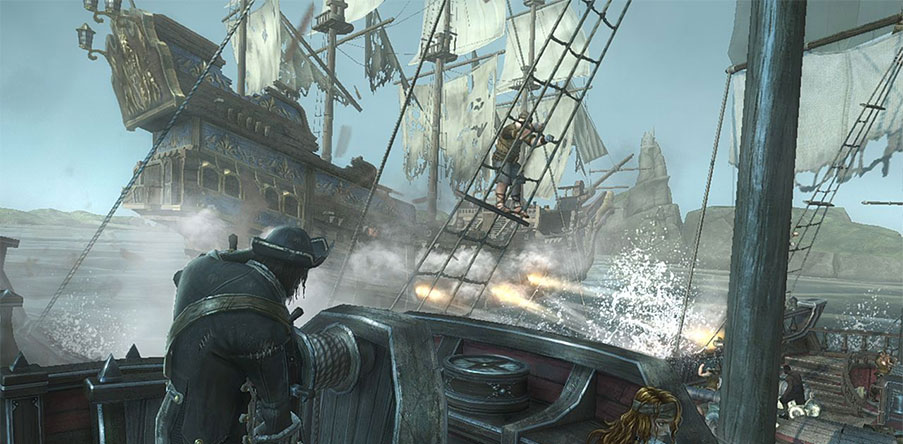
Credit: IGN
Pirates of the Caribbean: Armada of the Damned seemed to have a lot going for it. It had a ton of potential, and many in the games industry were eagerly looking forward to the title. Announced in 2009 at E3, the game was cancelled in October of 2010. Most of the team was laid off, and the studio was downsized to focus completely on the studio’s other game, Tron: Evolution, which was released in December of that year. Sadly, Evolution was not a success critically or commercially (I played it, it’s not a very good game). As a result of this, plans for DLC for Evolution were scrapped, and Propaganda Games was formally closed.
Why did this happen?
No one is really sure, but looking at Disney’s eventual game plans may give a clearer look. As was mentioned earlier in this piece, there was a period where Disney tried to seriously make a name for itself in video game development. In addition to the two games mentioned, there was also 2010’s Epic Mickey, which for many did not live up to its initial hype. After a sequel was released in 2012, the studio behind the game, Junction Point, was also shut down. There seemed to be a sense that after only a few years, Disney was looking to remove itself from the world of game development for consoles.
Enter Disney Infinity. A toys-to-life game based on Disney’s many properties (including Marvel and Star Wars), the game was the focus of Disney Interactive. Infinity was the only game developed in-house, save for a few mobile titles. It was a huge success for the company. Ot is the most popular of the toys-to-life subset of games. However, after three waves of Disney Infinity, the game was suddenly discontinued in 2016. Along with this, Disney had moved out of the self-publishing business, and the Disney Interactive branch of the company was now exclusively for mobile titles. Instead of developing games in-house, Disney would license its properties to third-party developers.
Would Armada of the Damned have been any good? Hard to tell, especially considering the reception of the studio’s prior two games. But considering the disappointment following its cancellation, it seems like we lost something special.
Potential Unrealized
Disney’s brief period of trying to enter the game’s world was full of potential. It was also full of disappointment.
Epic Mickey was not what many were expecting, and technical issues ultimately prevented that game from achieving greatness. Tron: Evolution was quite simply not a very good game. Maybe this was a warning signal to us since it was a game from the same studio. But Armada of the Damned always seemed more special. Looking at the Pirates of the Caribbean films somewhat objectively, it’s easy to see that they have major problems. However, the world-building done in those films is some of the best. With Armada of the Damned, you could’ve experienced that world first-hand. Now, there’s no such luck.
It’s a shame, really. As I’ve said, Disney has the best catalogue of IPs in its hands. Characters like Mickey Mouse, franchises like The Lion King, and also the libraries of Marvel and Lucasfilm. Disney has began to license out those last two properties, giving Star Wars to EA and Marvel to Square Enix. In a somewhat ironic turn of events, WB ended up buying former Infinity developer Avalanche Studios, who is now working on a Cars 3 game.
It’s a shame that Disney didn’t really give its internal studios a chance to make something special. I truly think, Disney committed a little more to its Interactive unit, they could’ve been a more competitive force. But maybe they just didn’t think developing games for consoles was lucrative enough. Maybe, like many others, they see mobile gaming as the most viable.
So, let’s take a moment to remember Pirates of the Caribbean: Armada of the Damned.
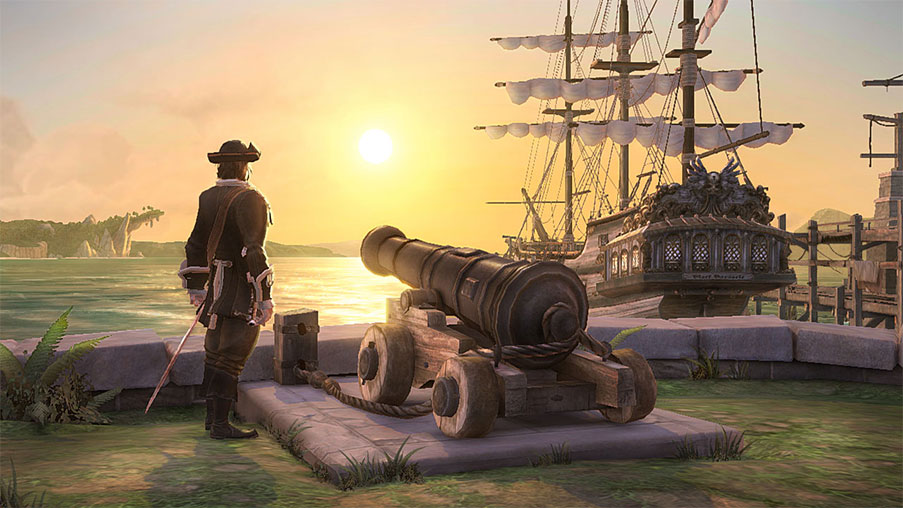
Credit: Shacknews.com




